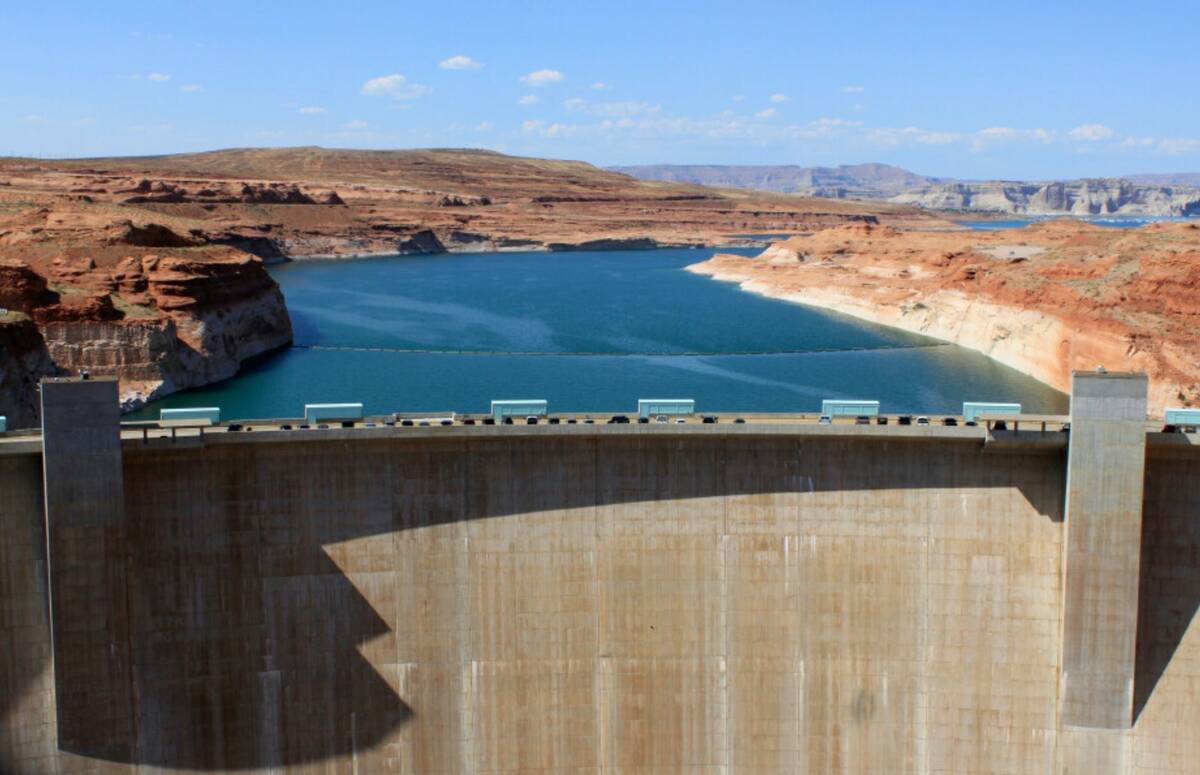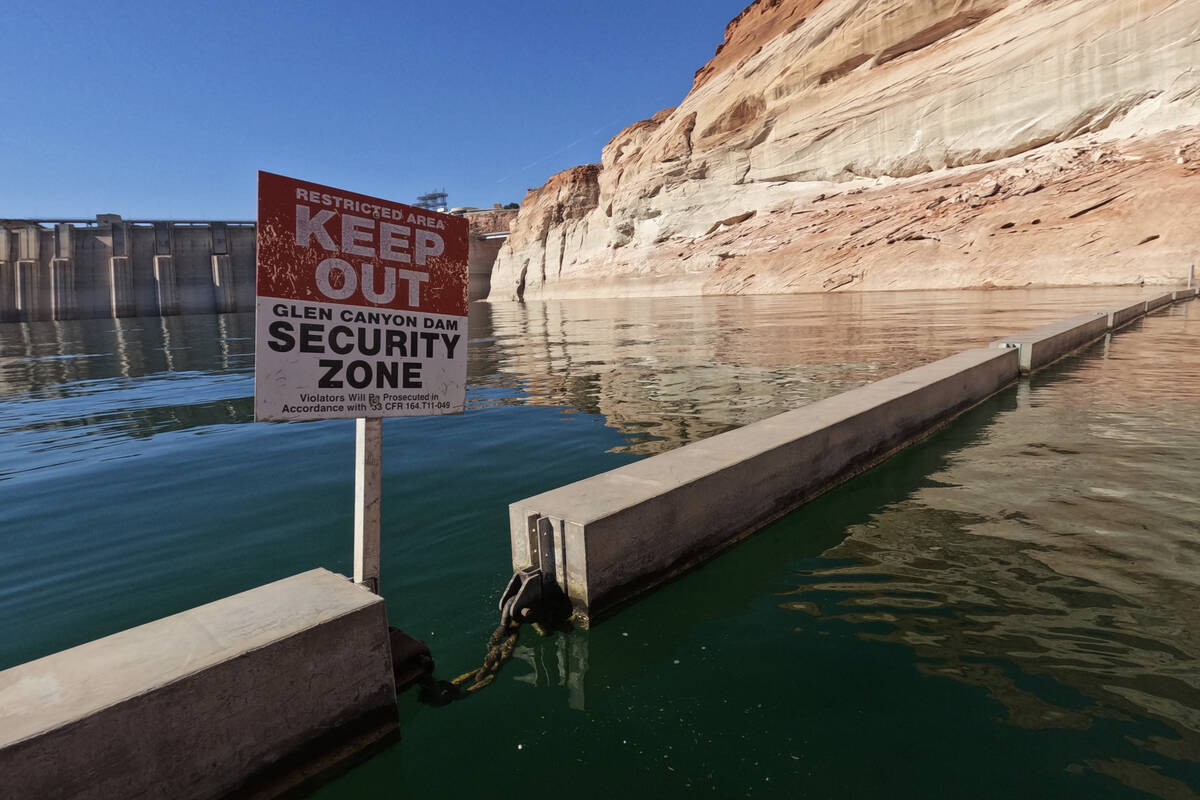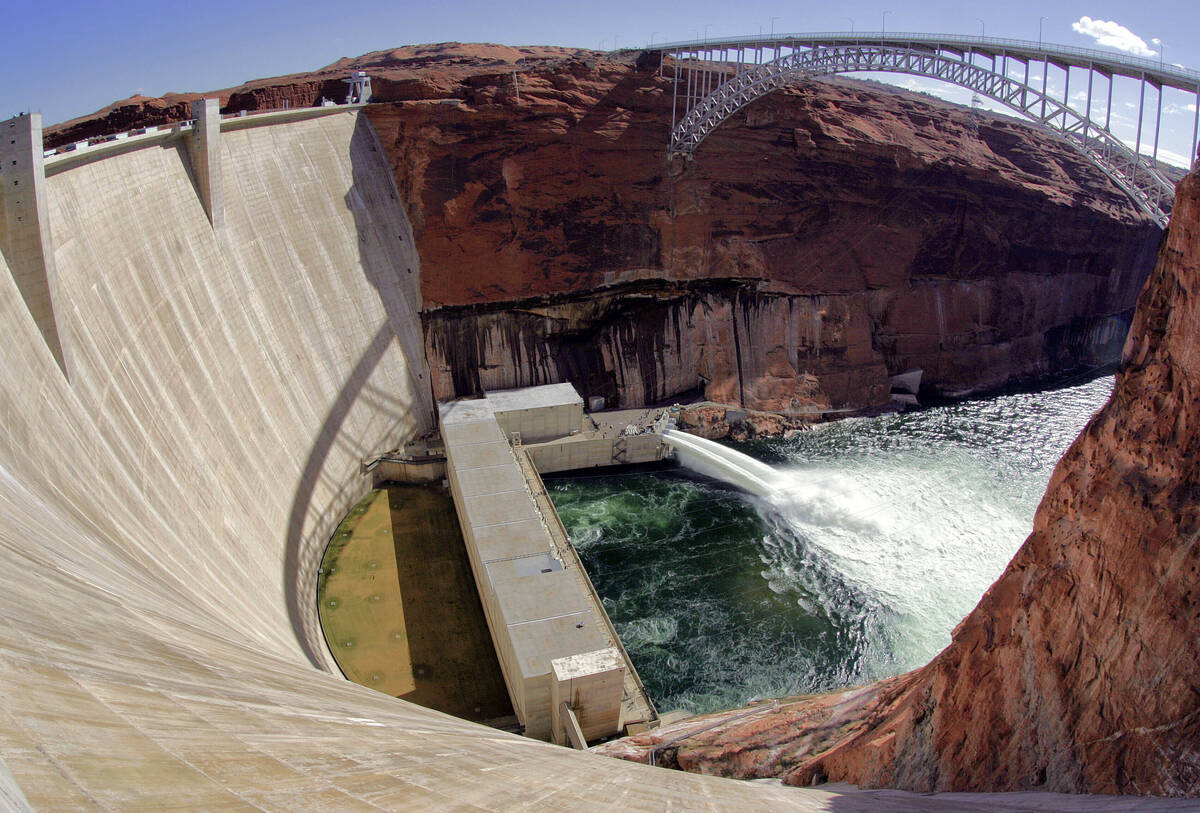‘Some difficult news’: New threat emerges to Colorado River system
ATLANTA — Plumbing problems at the dam holding back the second-largest reservoir in the U.S. are spurring concerns about future water delivery issues to Southwestern states supplied by the Colorado River.
Federal officials recently reported damage to four tubes known as “river outlet works” at Glen Canyon Dam on the Utah-Arizona border. The dam is responsible for generating hydropower and releasing water stored in Lake Powell downstream to California, Arizona, Nevada and eventually Mexico.
The U.S. Bureau of Reclamation, which operates the major dams in the Colorado River system, is evaluating issues related to Glen Canyon Dam when Lake Powell reaches low levels. Those issues include problems with the four tubes such as sedimentation and cavitation — when tiny air bubbles develop while water passes through plumbing. Cavitation can cause tears in metal and other mechanical damage.
River system
The Colorado River provides water to seven U.S. states, nearly 30 Native American tribes and two states in Mexico. Years of overuse by farms and cities, and stubborn drought worsened by climate change has meant that much less water flows today through the 1,450-mile river than in previous decades.
Lake Mead and Lake Powell, which store water and are used for recreation and power generation, serve as barometers of the Colorado River’s health. In recent years, they have fallen to historic lows then recovered somewhat thanks to above-average recent winter precipitation and water conservation.
The structural problems at Glen Canyon Dam, first reported by the Arizona Daily Star, could complicate how federal officials manage the river in years to come when hydrologists and others predict Lake Powell will fall below current levels. The damaged tubes sit below much larger ones known as penstocks that normally carry the reservoir’s water. The smaller tubes that make up the “river outlet works” allow water releases at lower reservoir levels.
Lake Powell currently sits at about 32% capacity.
‘Some difficult news’
Brenda Burman, general manager of the Central Arizona Project, a 336-mile canal system that delivers Colorado River water to Arizona’s cities, raised the issue at a meeting last month related to the river.
“We received some difficult news from the Bureau of Reclamation,” Burman said, adding that CAP would be working with Reclamation to investigate the problems in coming months.
JB Hamby, chairman of the Colorado River Board of California, said the dam’s design leaves open the possibility that huge amounts of water could be stranded in Lake Powell under low elevations.
He said an engineering solution would be the best way forward because other options could involve additional water cuts to states.
Doug MacEachern, communications administrator at the Arizona Department of Water Resources, said his agency was working with Reclamation to see “what, if any, technical fixes might exist.”
If federal officials can’t repair the tubes, MacEachern said his agency expected Reclamation to not place the burden of more water cuts solely on Arizona, California and Nevada, which make up the river’s so-called Lower Basin. Colorado, New Mexico, Utah and Wyoming form its Upper Basin.
Separately, states and tribes that rely on the Colorado River are working on a long-term deal to share the dwindling resource after current rules and guidelines governing how its water is divvied up expire in 2026.
Environmental groups for years have cautioned that water levels at Lake Powell could reach a point where Glen Canyon dam can no longer be used for hydropower or release water downstream.
“What’s at risk?” said Kyle Roerink, executive director of environmental advocacy group Great Basin Water Network. “The water supply for 25 million people and major agricultural producers.”
























